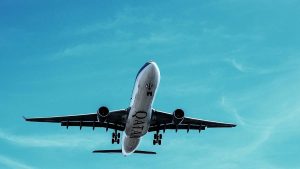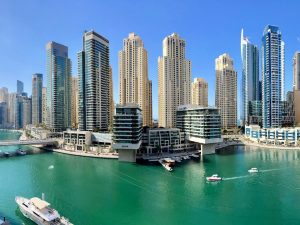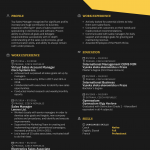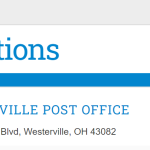What Is Business Travel?
Business travel is any travel that is undertaken for business purposes. This type of travel differs from regular commuting and leisure travel, which are both done for pleasure. The vast majority of small business owners enjoy their business travel. In fact, 88% of small business owners report that they look forward to this type of travel.
Tax-deductible cost of business travel
If you’re thinking of taking a business trip, you probably want to know if the cost of travel is tax-deductible. The IRS considers business travel to be expenses that are “ordinary and necessary” for carrying out business activities. The rules are more flexible for international travel. Generally, you’ll be able to deduct the cost of travel as long as you meet the requirements. But you’ll need to plan your trip carefully. The IRS looks at the length of time that you’re away for.
In addition to airfare and hotel accommodations, you can also claim certain expenses as business expenses. For example, if you’re traveling for a business meeting, you can deduct hotel or motel expenses for yourself. If you’re traveling for work, you can deduct up to five dollars per day in lodging expenses. If you’re traveling on business, don’t forget to include tips!
You’ll also be able to deduct the cost of shipping, baggage, and lodging. In some cases, you can even deduct your lodging and meals for up to 50% of the cost. And remember, these don’t have to be expensive hotels. You can even deduct the cost of a couch you stay with a friend.
To deduct your travel costs, you’ll need to show that you’re using the trip for business activities. This means that you spent at least half of your time doing business-related activities. You should also keep a log of all expenses while traveling for your business. It’s not enough to say that you’re traveling for business, however.
In some cases, you can even convert a vacation into a business trip. For instance, you can claim the cost of a business-related plane ticket home if you use a business class plane. That way, you can save money and time. Plus, you can treat yourself to a luxury hotel suite or rent a Rolls-Royce.
You can also deduct your travel expenses for a legitimate reason, such as meeting a client or attending a business conference. You can also get a deduction for relocation expenses.
Segmentation of business travel
The global business travel market is comprised of different segments that cater to different types of travelers. Among these segments, the group segment represents the largest market. This segment is expected to grow at a high CAGR during the forecast period (2017 to 2020). The reason behind this segment’s growth is the low cost involved in group tourism. This is because service providers offer discounted rates to groups.
While business travelers are traditionally assumed to be focused on work, research shows that business travelers are also seeking emotional stimulation. Many business trips today incorporate a strong leisure element. Because of this, the decisions that people make regarding business travel are often emotionally charged. This has led researchers to segment the market by emotional factors, satisfaction, and behavioral intentions. One study of 400 managers found that satisfaction levels were related to the emotional content of the travel experience.
There are several key segments of the global businesstravel market, including business travellers, service providers, and travel destinations. These segments are then further broken down geographically. For example, North America is segmented by industry, while Europe and Asia-Pacific are segmented by region. Within each region, different types of travel services are offered.
Using advanced data analytics to segment audiences can help marketers target their marketing campaigns. This helps businesses increase their revenues through increased customer loyalty. By identifying which segments are most likely to purchase travel products and services, travel brands can create more effective marketing campaigns. They can also better understand their customers. This allows them to customize their content and offer relevant services.
Ways to improve the traveller’s experience
Businesstravel is often stressful, draining and can affect a traveller’s personal life. But there are ways to improve the traveller’s experience during these trips to reduce their stress levels and increase their wellbeing. As well as boosting employee productivity and engagement, improved traveller experiences can also help improve company health. Instead of focusing on a tired, outdated business travel model, companies are now placing an emphasis on a passenger-driven experience.
The traveller’s experience should be optimised by providing them with enough time and breathing space to reduce stress and maximize performance. This can be done by allowing travelers to make decisions that best fit their lifestyle. By identifying and implementing initiatives that support traveller well-being, businesses can improve the traveller’s experience on their journeys and attract the best employees.
While establishing travel policies, companies should also take the time to communicate them to employees. This can include distance-based policies, modes of travel, and group gatherings. Companies should also establish open channels for communication and encourage employees to raise any concerns. For example, a company should create personalized risk assessment checklists for each employee.
One way to enhance the traveller’s experience during business travel is by ensuring that employees can communicate effectively and build relationships. The ability to meet colleagues in person can improve empathy, productivity and overall trip satisfaction. A recent study showed that 73 percent of business travelers were satisfied with their experience overall.
Impact of COVID-19 pandemic on business travel
The recent COVID-19 pandemic has posed some new challenges to the business travel industry. The first is that businesses will have to rethink their travel plans. While the disease affected many areas, businesstravelers were one of the hardest hit sectors. Because of travel restrictions, many companies canceled international travel. However, business travel is expected to slowly rebound. According to Verdict’s poll, six out of ten business leaders expect business travel to reach pre-pandemic levels by 2023.
While the initial effect of the COVID-19 pandemic will be temporary, the effects of the virus will be felt for years to come. The reduction in business travel will affect whole ecosystems of commerce that depend on it. These include airport shops, downtown bars, construction companies building convention stages, taxi drivers, and aircraft manufacturers.
While business travel has recovered in many cities, international travel has not. This is largely due to government restrictions and public-health concerns. The uneven roll-out of the COVID-19 vaccine in some countries may further impact international travel. As a result, business travelers may be reluctant to fly internationally.
Business travel has become less frequent among senior executives than in previous years. Senior executives can often handle their activities via video conferencing, but employees in other categories may need to travel. For example, those installing key elements in manufacturing plants or glazing office buildings may need to travel. These travel-related costs are likely to lower overall productivity. But the reduction in business travel could be temporary. The impact of COVID-19 on business travel is unlikely to be felt until the vaccine is ready.
Business travel is estimated to add $334 billion to the U.S. economy in 2019, supporting about 2.5 million jobs. However, if the travel-related industry suffers a serious downturn, business travel is predicted to lag behind in terms of revenue. This could lead to a restructuring of airline fares. Additionally, hotels and restaurants may experience lower revenues. Because many business travelers extend their trips, they could lose revenue. In addition, certain cities depend on business travel to drive tourism and sales tax revenues.
The COVID-19 pandemic has forced businesses to rethink business travel. As a result, many companies have turned to teleconferencing or virtual meetings to get their work done. Many companies are expecting a recovery period of one to three years, while others are permanently shifting some of their work travel to virtual meetings.















